Analysis
‘Unacceptable,’ Ex-Envoys Fault Tinubu Over Non-Appointment Of Ambassadors For 10 Months
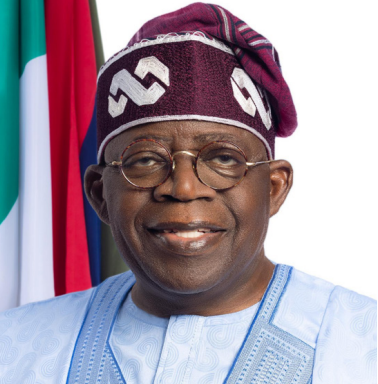
Former Nigerian envoys have criticized President Bola Tinubu for failing to appoint ambassadors for the past 10 months, describing the delay as “unacceptable” and “embarrassing” for the country.
The ex-envoys, who spoke to Channels TV and monitored by Diaspora Watch, expressed concern that the prolonged absence of ambassadors in key countries is affecting Nigeria’s diplomatic relations and economic interests.
They noted that the delay is unprecedented, as previous administrations typically appointed ambassadors within a few months of taking office. The former envoys called on President Tinubu to urgently address the issue, citing the importance of ambassadors in promoting Nigeria’s foreign policy and economic interests.
They also expressed concern that the delay may be due to political considerations, such as rewarding political loyalists with ambassadorial positions, rather than selecting career diplomats or qualified individuals.
The ex-envoys warned that the continued absence of ambassadors may lead to a decline in Nigeria’s global influence and economic opportunities. Their comments come as Nigeria faces diplomatic challenges, including the recent closure of its embassy in Mexico due to lack of funds.
The presidency has yet to respond to the criticism, but sources indicate that the appointment of ambassadors is being delayed due to ongoing reforms in the foreign ministry.
The former envoys’ criticism highlights the need for urgent attention to Nigeria’s diplomatic corps, which they say is essential for promoting the country’s interests abroad.
As the delay continues, Nigeria’s diplomatic relations and economic interests hang in the balance, raising questions about the government’s commitment to effective foreign policy and diplomacy.
Analysis
The Price of Nigeria’s Diplomatic Vacuum, by Alabidun Shuaib AbdulRahman
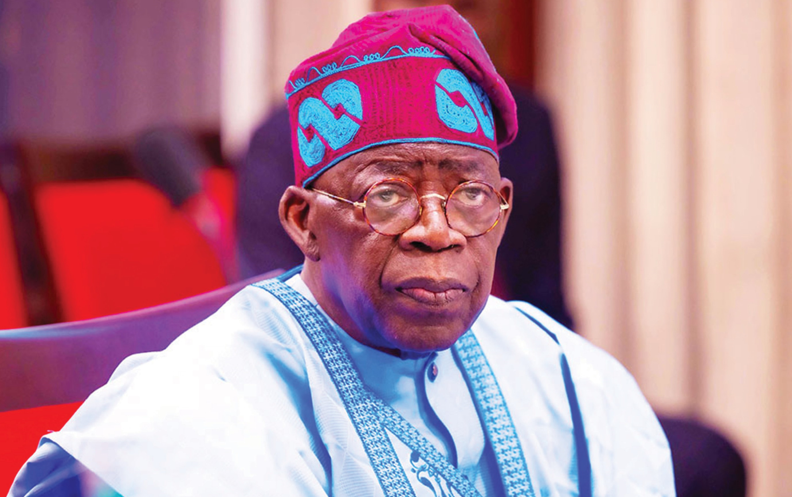
The Price of Nigeria’s Diplomatic Vacuum, by Alabidun Shuaib AbdulRahman
There is a language nations speak without words: the handful of flags that fly over their embassies, the names on the placards at international conferences, the faces who present credentials to foreign heads of state. A steady, visible, and authorised presence is itself a powerful form of diplomacy. Conversely, absence speaks too: it is read as drift, as indifference, as lack of capacity. For over two years now, Nigeria has been sending a troubling message to the world by omission and the recent storm around U.S. reactions to violence in Nigeria has only made that silence more dangerous.
In September 2023, President Bola Ahmed Tinubu ordered an unprecedented recall of Nigerian envoys, a sweeping reset that swept through 109 missions worldwide. The recall was widely reported and framed as part of a “comprehensive restructuring” of the foreign service. Yet what followed was not a quick redeployment but a prolonged vacuum. Many of Nigeria’s 109 missions, by the Ministry of Foreign Affairs’ own count, made up of 76 embassies, 22 high commissions, and 11 consulates, have operated for over 25 months and counting without substantive ambassadors.
This is not trivia. Ambassadors are not ceremonial appointments; they are policy instruments. They lobby, they explain, they convene, they protect citizens, and often they move quietly to avert crises that would otherwise become headlines.
The danger of that deficit became painfully visible in the past fortnight when the United States took a dramatic step: Nigeria was added to a religious-freedom watch list and President Donald Trump publicly warned of sanctions and even threatened military “action” if alleged abuses were not addressed. The statement as reported across major outlets did not arise in a vacuum. It surfaced at a moment when narratives about insecurity in Nigeria, amplified by transnational networks and sympathetic political forces in Washington, had already gained purchase.
In such moments, a credible and well-placed ambassador can make an enormous difference — briefing congressional staff, arranging private meetings with State Department principals, convening diaspora interlocutors and think-tank experts, and getting the facts, context and data into the hands of decision makers. With a substantive ambassador absent, those lines of direct, high-level persuasion are far weaker.
Look back and you will see how effective envoys have been in previous crises. Nigeria’s ambassadors have repeatedly been the country’s first line of defence in moments of reputational peril. Joy Uche Angela Ogwu, who served as Nigeria’s Permanent Representative to the United Nations, chaired the UN Security Council and used that platform to shape debates about peacekeeping and African security, raising Nigeria’s profile at critical junctures. Christopher Kolade’s tenure in London helped restore confidence in Nigerian-UK relations in the early 2000s; his personal credibility smoothed rough political moments and opened space for trade and cooperation. And career diplomats such as Ade Adefuye in Washington combined scholarship with statecraft to keep complex bilateral channels open when tensions threatened to escalate. These are not anecdotal footnotes: they are evidence that skilled ambassadors change outcomes.
The facts of Nigeria’s current political economy make this vacuum all the more costly. Formal diaspora remittances rose sharply in 2024: the Central Bank of Nigeria reported that personal remittance receipts increased to about $20.9 billion in 2024 — a lifeline for families, a buffer for foreign-exchange reserves, and a major instrument of economic resilience. That stream of capital arrives and is mediated through embassies and consulates that service diasporas in the United States, Europe and the Gulf. Where missions are leaderless or under-resourced, vital consular functions suffer and diaspora engagement weakens.
At home, the macroeconomic and social context is thorny. Headline inflation after peaking in 2024 was reported to have eased to around 18.02% in September 2025, a signal of nascent stabilization but still a heavy burden for citizens struggling with the rising cost of living. Unemployment figures remain contested because of methodological revisions at the statistical office, but credible reporting and international observers warn that youth under-employment and precarious work remain structural challenges that require external partnerships (investment, skills exchanges, technology transfers) to address meaningfully. Ambassadors are key to courting that investment and to telling the nuanced story of reform on the ground.
So what precisely does Nigeria stand to lose and what could a full diplomatic corps still salvage?
First, influence in high-stakes bilateral relationships. The United States, the United Kingdom, China, the Gulf states and the European Union are not just partners; they are sources of investment, security cooperation and multilateral leverage. An ambassador with a direct line to Washington or Brussels can move quickly to protect bilateral programmes, reassure partners, and correct misrepresentations as past envoys have done during periods of acute scrutiny. The absence of properly accredited envoys reduces Nigeria to reactive press statements delivered from the Presidency rather than proactive personal diplomacy in the capitals that matter.
Second, the operational loss: trade facilitation, investor matchmaking and visa reciprocity. Nigeria’s spot at the table in negotiations over AfCFTA rules, digital trade norms, and technical cooperation is best defended by envoys who know both the domestic policy detail and the host country’s political rhythms. Several recent reports have highlighted how coordination problems between ministries and missions slowed post-summit follow-ups after presidential trips as opportunities erode faster than rhetoric.
Third, diaspora protection and remittances. Embassies are the interface for millions of Nigerians abroad. When missions are understaffed or run by officers with limited mandate, the timeliness and effectiveness of consular assistance from passport services to crisis interventions deteriorate. This is more than inconvenience. It damages confidence, reduces formal remittance channels and diminishes the state’s capacity to mobilise its diaspora as economic and political assets.
Fourth, reputational repair. Foreign-policy shocks stick. Narratives once set whether about corruption, insecurity, or human-rights violations become grist for activists, competitors, and foreign legislatures. Ambassadors are the corrective lens that present balanced data, context and counter-narratives. Without them, the field is left to town criers abroad and hostile networks who have incentives to amplify worst-case versions of our reality. The Trump episode is an instructive example: the designation and the rhetoric around it show how quickly international policy can be reframed by a small but influential political ecosystem.
This is not to excuse poor choices or to ask for haste without quality. Ambassadorial appointments must be meritocratic, transparent and strategic. Nigeria’s foreign service needs both seasoned career diplomats and well-qualified non-career appointees who understand the country’s reform agenda. Ambassadors must be given clear, measurable mandates: increase two-way investment by X percent within Y years; secure technical partnerships in health and security; deepen research and educational linkages; protect diaspora welfare; and actively manage national narratives in host countries. Those targets make appointments accountable and useful.
There are signs the presidency recognises the urgency. Reports in national outlets indicate that the administration has moved to finalise ambassadorial lists and that nominations are expected to be announced. If true, the moment is to get it right, but without turning diplomacy into patronage. A carefully selected diplomatic bench, empowered with clear objectives and proper resourcing, can begin the work of repairing lost ground and seizing opportunities.
Finally, a larger principle underwrites the immediate ask: diplomacy is national infrastructure. Like rail or broadband, it must be maintained lest the nation’s productive capacity shrink. For a country as large and consequential as Nigeria, diplomats are not expendable extras; they are assets of sovereignty. The choice to leave missions headless for too long is a strategic gamble that exacts real costs in economic, security and reputational.
The practical remedy is straightforward: nominate steadily, vet transparently, deploy decisively, and hold envoys to clear deliverables. But the moral case is as important: if a nation expects the world to take its reforms, its developmental aspirations, and its security concerns seriously, it must be present where the world decides. Silence in the corridors of influence will be read as absence of will. Nigeria cannot afford either.
A restored and purposeful diplomatic corps will not fix every problem. But it will restore Nigeria’s voice, the first indispensable step toward shaping the narratives that determine whether we are judged by our worst headlines or by our capacity to reform, to protect citizens, and to compete for the future. If the Tinubu administration is serious about the Renewed Hope Agenda, then it must treat ambassadorial appointments as policy imperatives, not political rewards.
Alabidun is a media practitioner and can be reached via alabidungoldenson@gmail.com
Analysis
Justice for Ochanya Ogbanje, by Boniface Ihiasota
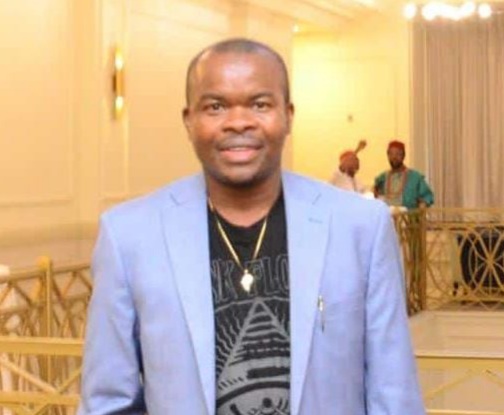
Justice for Ochanya Ogbanje, by Boniface Ihiasota
In a country where injustice too often becomes routine, the story of Ochanya Ogbanje still stands out — haunting, unforgettable, and deeply symbolic of our collective moral failure. Hers is not just the story of a 13-year-old girl from Benue State; it is a painful reminder of what happens when society normalises silence in the face of cruelty.
Ochanya was a bright and hopeful student of the Federal Government Girls College, Gboko, until her life was brutally cut short on October 17, 2018. She died from complications arising from vesicovaginal fistula (VVF), a condition caused by repeated sexual assault. The perpetrators were not strangers lurking in dark alleys but they were family: her guardian, Andrew Ogbuja, a lecturer at the Benue State Polytechnic, and his son, Victor.
Reports later revealed that Ochanya had endured years of sexual violence under their roof in Ugbokolo, Okpokwu Local Government Area. When she finally broke her silence, her body had already borne more trauma than most could imagine. She was admitted to the Federal Medical Centre, Makurdi, where she died a few days later.
Her death sparked outrage. Nigerians, united by collective grief, demanded accountability under the banner of #JusticeForOchanya. Civil society organisations, women’s rights groups, and lawyers mobilised nationwide. For once, it seemed the system would act.
But seven years later, justice remains a mirage.
In April 2022, the Benue State High Court acquitted Andrew Ogbuja, the main suspect, of rape and culpable homicide, citing insufficient evidence. His son, Victor, remains at large. Their matriarch, Felicia Ogbuja, was convicted for negligence and handed a few months jail term, a slap on the wrist that mocked the gravity of the crime.
How does a case so clear, so public, and so painful collapse under the weight of “technicalities”?
The answer lies in a justice system ill-equipped to protect the weak. In Nigeria, sexual and gender-based violence is often treated as private misfortune rather than public crime. According to UNICEF, one in four Nigerian girls experiences sexual violence before the age of 18, but only 4.8 per cent of reported cases ever result in conviction. This statistic is not just a number, it is a damning verdict on our collective failure to protect children like Ochanya.
The legal process that followed her death exposed deep cracks in Nigeria’s justice architecture. Investigations were slow, evidence poorly handled, and witnesses inadequately protected. There were reports of institutional interference, procedural loopholes, and social pressures that diluted the pursuit of truth.
In a functioning system, child sexual assault cases receive priority attention. Evidence is collected within hours, witnesses are shielded from intimidation, and survivors (or their families) are supported with counselling. In Nigeria, the reverse is often the case. Victims are shamed, families are ostracised, and offenders are shielded by status or influence.
But beyond the courtroom, Ochanya’s story raises uncomfortable questions about our society. How many teachers, neighbours, or family friends suspected abuse but said nothing? How many community elders preferred to “settle it quietly”? Silence, in such cases, becomes complicity.
This culture of silence is what sustains impunity. The Child Rights Act of 2003 should have been our strongest weapon against such abuse. Yet, more than two decades later, 11 states, mostly in northern Nigeria have still not domesticated it. Even in states where it exists, enforcement remains weak. Without strong institutions and consistent public pressure, laws become mere words on paper.
From the Diaspora, where systems treat every child’s safety as sacred, it is painful to watch Nigeria stumble repeatedly over the same failures. In countries like Canada or the United Kingdom, a single case like Ochanya’s would trigger sweeping investigations, public apologies, and institutional reform. In Nigeria, it barely sustains public attention for a month. That indifference is deadly.
Justice for Ochanya must go beyond hashtags and memorials. It requires deliberate institutional reform from how police handle sexual crimes to how courts prioritise them. Benue State must reopen the case, locate Victor Ogbuja, and review the 2022 acquittal in light of fresh evidence or procedural lapses. The Federal Ministry of Women Affairs and NAPTIP must coordinate efforts to ensure that child protection is not just a policy goal but a daily practice.
Civil society must also remain vigilant. Organisations like WACOL, FIDA Nigeria, and The Coalition Against Rape and Sexual Violence (CARSV) have done commendable work, but they need sustained funding, collaboration, and public support to continue their advocacy.
Ultimately, justice for Ochanya is not about vengeance, it is about restoring faith in our humanity. Her death should provoke national soul-searching: how many more Ochanyas are suffering in silence across Nigeria today?
Every child deserves protection, dignity, and justice. The measure of any nation’s greatness lies not in its economic strength or political power, but in how it treats its most vulnerable.
Analysis
Now That Tinubu Has Listened … by Alabidun Shuaib AbdulRahman

Now That Tinubu Has Listened … by Alabidun Shuaib AbdulRahman
When President Bola Ahmed Tinubu announced, earlier in October 2025, that 175 individuals had been granted state pardon, clemency, or commutation of sentences, the news was framed as an act of justice, compassion, and correction. It was meant to mark a milestone in the President’s promise of a “renewed hope” administration, one that tempers justice with mercy, and offers a second chance to the reformed.
But in the days that followed, that noble gesture swiftly morphed into a national debate. The backlash was intense, the criticisms unrelenting, and the public mood unmistakably angry. What began as a constitutional exercise soon appeared, to many Nigerians, as a moral misjudgment. And by the end of October, the President was forced to reverse parts of the decision, trimming the list, clarifying the scope, and pledging a review of the process.
Now that Tinubu has listened, the question that must be asked is: What has he really done? And more importantly, what has the entire episode revealed about power, public trust, and governance in Nigeria?
Interestingly, the presidential clemency, announced on October 12, came through the Ministry of Justice and covered 175 individuals across various categories, including pardons, commutations, and reprieves. The list, compiled by the Presidential Advisory Committee on the Prerogative of Mercy (PACPM), included a mix of convicts serving jail terms for drug trafficking, illegal mining, fraud, and violent crimes, alongside some posthumous pardons for historical figures such as nationalist Sir Herbert Macaulay and military officer Major-General Mamman Jiya Vatsa.
The official statement from the Presidency said the exercise aimed to “decongest correctional facilities and promote restorative justice,” in line with Section 175 of the 1999 Constitution. It added that the beneficiaries were selected after “due consideration of factors such as age, ill health, good conduct, and evidence of reformation.”
But almost immediately, Nigerians began to ask: Who decides what qualifies as reformation? Were victims consulted? And how do you justify extending clemency to persons convicted of drug-related and violent crimes in a country still reeling under the weight of insecurity, substance abuse, and moral decline?
Social media erupted in outrage. Civil society groups issued statements condemning the exercise as tone-deaf and insensitive. Legal experts questioned the criteria used. Families of victims expressed disbelief that individuals convicted of offences like armed robbery and homicide could be released or have their sentences reduced without public consultation. The backlash was swift and brutal.
In a nation, moral-wise, already struggling with eroded trust in institutions, Tinubu’s clemency decision struck a nerve. Critics argued that mercy, though constitutional, must not be exercised in a way that undermines justice or public confidence.
For many Nigerians, the pardon list symbolised the very thing they feared about governance, a system that protects the powerful while ignoring victims.
Several high-profile inclusions stirred the controversy. Among those initially listed were convicts serving long sentences for drug trafficking, one for cocaine importation, and another for illegal mining, crimes that continue to destabilise communities and the economy. The perception was that Tinubu’s clemency ignored the gravity of the offences and the broader social harm they caused.
Public intellectuals and editorial boards joined the fray. The Punch editorial of October 24th described the move as “reckless leniency,” arguing that it “trivialises justice and weakens deterrence.” Others accused the government of seeking cheap populism through arbitrary mercy.
Facing a public rage, President Tinubu’s team scrambled to regain control of the narrative. On October 29, just over two weeks after the initial announcement, the Presidency issued a revised statement.
The revised list, according to The Cable and Channels TV, was trimmed from 175 names to about 120. Persons convicted of serious crimes, including kidnapping, armed robbery, human trafficking, large-scale drug trafficking, and unlawful possession of firearms were either removed entirely or had their full pardons converted into partial sentence reductions.
The Presidency clarified that the revision followed “a fresh security and legal review” by the Attorney-General of the Federation and that the decision was taken “to be sensitive to the feelings of victims and society at large.”
It was also announced that the Secretariat of the Presidential Advisory Committee on the Prerogative of Mercy would henceforth operate under the Federal Ministry of Justice, rather than the Office of the Secretary to the Government of the Federation, to ensure “greater legal oversight and due process.”
While the reversal calmed the outrage, it raised deeper questions about the integrity of governance processes. How did such a controversial list pass through layers of bureaucratic scrutiny before reaching the President’s desk? And why did it take public uproar for corrections to be made? Tinubu’s reversal, though commendable, underscored a reactive style of governance that bends to outrage rather than pre-empting it through consultation and moral foresight.
In fairness, listening to public sentiment is not weakness, it is a democratic strength. Tinubu deserves credit for acknowledging the outcry and acting promptly. But the larger issue is systemic. The episode exposed the opaque nature of Nigeria’s clemency system. The Presidential Advisory Committee on the Prerogative of Mercy operates largely behind closed doors, with minimal public oversight. There is no clear national framework defining who qualifies for mercy, how victims’ perspectives are integrated, or what accountability measures follow a pardon.
In contrast, countries like South Africa, Ghana, and Kenya have more transparent systems. In South Africa, for instance, clemency applications are published publicly, judicial advice is sought, and reasons for each decision are documented. These procedures protect both the President and the public from perceptions of bias or impunity. Nigeria lacks such guardrails, leaving presidential mercy vulnerable to political manipulation or poor judgment.
If Tinubu truly wishes to turn this episode into a learning moment, the next step must be institutional reform. A National Clemency Policy should be developed under the Ministry of Justice, detailing eligibility criteria, consultation procedures, and exclusions. Certain crimes such as terrorism, kidnapping, rape, large-scale corruption, murder, drug-trafficking and violent offences should be explicitly barred from pardon. Victims’ rights should also be central to the process, ensuring that their pain is neither ignored nor overridden by political convenience.
Moreover, post-pardon monitoring should be introduced to ensure that beneficiaries truly reintegrate into society as reformed citizens. Without such mechanisms, clemency risks becoming a revolving door for repeat offenders, weakening public trust and emboldening criminality. Mercy, when detached from accountability, is indistinguishable from impunity.
The deeper implication of Tinubu’s reversal lies in what it says about public trust. Nigerians are weary of governance that appears tone-deaf to moral and social realities. Every decision that seems to favour the powerful or the undeserving erodes faith in the system. For years, citizens have watched politicians, officials, and well-connected individuals escape justice through legal technicalities or political cover. The clemency controversy reopened old wounds, reminding many of a recurring theme: that justice in Nigeria is too often a privilege, not a right.
Tinubu’s decision to review the list, therefore, must mark more than damage control; it must signal a renewed commitment to principled governance. Listening is good, but leading is better. A president should not have to wait for outrage to do what is right. Leadership demands foresight, the moral clarity to anticipate public reaction and align decisions with the nation’s conscience.
The lesson from this controversy is clear. Mercy, when rightly exercised, strengthens justice; but when misused, it trivialises it. The prerogative of mercy was never meant to serve as a political tool or public relations gesture. It exists to balance the scales of justice when the law, in its rigidity, risks losing its humanity. For it to achieve that noble purpose, it must be guided by transparency, fairness, and integrity.
Now that Tinubu has listened, he stands at a crossroads. He can either let this controversy fade as another episode in Nigeria’s long history of public uproar and government retreat, or he can seize it as a turning point, one that ushers in a more accountable, morally grounded system of justice. The path he chooses will define not just his presidency but also the moral tone of governance in the years to come.
The clemency debate, at its core, was never about law alone. It was about values, about what kind of country Nigeria wants to be: one that prioritises compassion with conscience or one that mistakes pardon for weakness. The President’s reversal was necessary, but the journey toward reform has only just begun. Nigerians have spoken; Tinubu has listened. The next challenge is to act not for applause, but for posterity.
Alabidun is the Editor of Diaspora Watch Newspapers and can be reached via alabidungoldenson@gmail.com
-
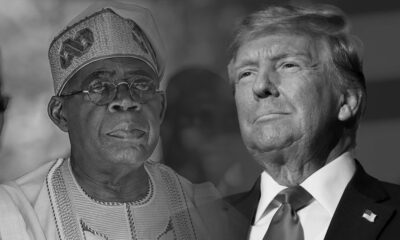
 News1 week ago
News1 week agoTrump Threatens Military Action in Nigeria Over Alleged Christian Killings
-

 Analysis1 week ago
Analysis1 week agoNow That Tinubu Has Listened … by Alabidun Shuaib AbdulRahman
-
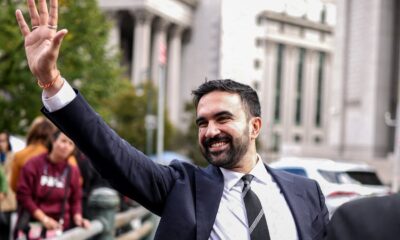
 News1 week ago
News1 week agoMamdani Poised to Make History as New York’s Youngest, First Muslim Mayor
-

 Analysis1 week ago
Analysis1 week agoJustice for Ochanya Ogbanje, by Boniface Ihiasota
-

 News1 week ago
News1 week agoCARICOM Seeks Global Support to Tackle Soaring Insurance Costs in Tourism Sector
-

 Business1 week ago
Business1 week agoU.S. Air Travel in Crisis as 13,000 Air Traffic Controllers Work Without Pay Amid Government Shutdown











